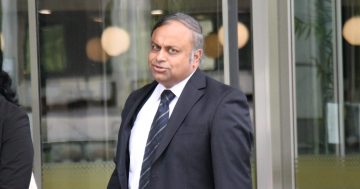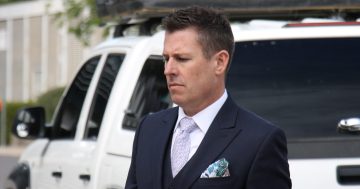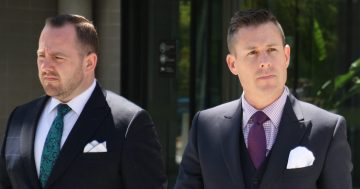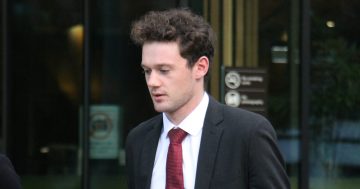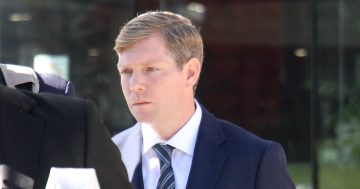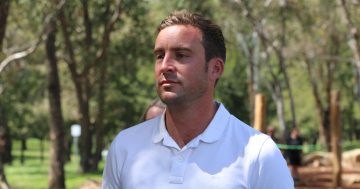
Abdul Aziz El-Debel (left) and Raminder Singh Kahlon (right) leaving court on the first day of their trial. Photos: Albert McKnight.
A trial has begun for two men accused of conspiracy to defraud the Department of Finance through an allegedly “corrupted” recruitment process.
Abdul “Alex” Aziz El-Debel and Raminder Singh Kahlon both pleaded not guilty to a charge of conspiring with each other and a third man with the intention of dishonestly obtaining a gain from the Commonwealth between March 2019 and June 2020.
When Crown Prosecutor David Staehli SC gave his opening submissions to the 15 jurors in the Supreme Court on Tuesday (7 June), he said the third man charged in the conspiracy was not part of this trial, but he asked jurors not to speculate as to the reason why.
“This is a case based on a series of unfortunate events, some of them peculiar,” he said.
He said Mr El-Debel was a public servant in the Department of Finance, while the other two were contractors.
He alleged the three men had been part of a recruitment process that was “from time to time corrupted” by them influencing the recruitment of potential contracts.
The three also allegedly had an agreement to share in the proceeds, which made their involvement in any selection process a dishonest one as it meant they had “a conflict of interest”, he said.
Mr Staehli said Mr Kahlon’s company Algoram, and the third man’s companies, received contracts from the Department of Finance to help with important computing projects.
Mr El-Debel allegedly assigned the third man to do one task for the department.
Mr Staehli said “large sums” of money flowed to the two companies. He alleged Mr Kahlon sent “hundreds of thousands of dollars” overseas, including sending up to $250,000 several times to companies in Hong Kong and India.
While he said he didn’t allege that remitting the money overseas was a criminal offence, he did allege it showed there was a “pool of money overseas” that could “find its way into the hands” of Mr El-Debel or the third man.
He said the dishonesty came from allegedly “sharing in the proceeds” of their payments, which was something not known to the department.
“That’s all convoluted, I know,” Mr Staehli remarked to jurors at one stage.
He warned jurors there would be “a lot of material to absorb”, including phone transcripts, financial material and Department of Finance documents dealing with some of the transactions in the case.
Also, about 24-hours’ worth of telephone intercepts would be played to the court. As the third man and Mr Kahlon were of Indian heritage, translations from Hindi to English had to be made for parts of their calls.
Mr Staehli alleged the phone intercepts would show Mr Kahlon and the third man discussed paying Mr El-Debel a “cut” and showing him their “margin”.
He also said the third man discussed deleting all of his “chats” with Mr Kahlon, which he suggested meant they knew what they were doing was dishonest.
Mr Staehli told jurors a conspiracy was simply “an agreement to do something illegal”.
“You can’t be in a conspiracy of one because you’ve got no one to agree with,” he remarked.
The trial continues before Justice Michael Elkaim.












